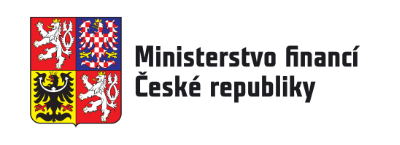Informal ECOFIN: day one (3.04.2009)
Prague, April 3rd, 2009
On 3 and 4 April, Prague hosts an informal meeting of finance and economy ministers and governors of central banks of the European Union.
Chaired by Czech Finance Minister and ECOFIN President Miroslav Kalousek, the meeting has brought together EU Commissioners J. Almunia and Ch. McCreevy, European Central Bank President J.-C. Trichet, and European Investment Bank President P. Maystadt. The first day of the meeting was attended by Italy’s former Finance Minister and current President of the Notre Europe think-tank, T. Padoa-Schioppa.
On the first day of the meeting, the ministers and governors addressed primarily the current economic situation and the development on the financial markets, reflecting the results of the G20 summit that took place in London on 2 April.
At the beginning of the meeting, the finance ministers discussed the implementation of the Stability and Growth Pact. In particular, they focused on the excessive deficit procedure (EDP), which is triggered when a country has or plans to have a public budget deficit in excess of 3% of its GDP. The ministers approved draft Council decisions on the existence of excessive deficit in France, Ireland, Greece and Spain. The ministers also agreed on a new Council decision and recommendation aiming to end the excessive deficit situation of the United Kingdom, in respect of which the EDP was launched in 2008. All these countries have received recommendations for further course of action and specific deadlines to correct their excessive deficits in line with their economic conditions and budgetary positions. In light of the deteriorated fiscal situation in the EU, the ministers reaffirmed that the priority is to revert to budget consolidation. In addition to the EDP, the ministers addressed the Council opinion on the Stability Programme of Cyprus. All legislative acts – the Council decisions and recommendations and the Council opinion on the programme of Cyprus – will be formally adopted at the 27 April Council meeting.
The first topic addressed at the joint meeting of finance ministers and central bank governors was the current economic and financial situation, which has remained very difficult. The attendants voiced their concerns over the current drop in international trade volumes and the impacts of the recession on the labour market. The attendants further agreed that a restoration of trust showed by economic entities, which is closely linked to improved situation in the financial sector, is of paramount importance for renewed growth. The necessity to address the banks' impaired assets and the need to tackle international accounting standards in relation to the steps taken by the United States of America, among other things, was emphasised in this context. The informal ECOFIN meeting welcomed the results of the London G20 summit which benefited from the major contribution of the EU. The agreement to substantially increase the funds of international financial institutions, including, but not limited to, the IMF, and the progress made on the issue of financial markets regulation, which saw the approach of the EU pushed through to a considerable degree, was pointed out as a major success.
To conclude the first day of the meeting, the ministers and governors assessed the economic benefits and costs of the EU enlargement five years ago. In this respect, the Czech Presidency organised the "EU Enlargement – 5 Years After" conference that was held on 2 March in Prague. The ministers and governors agreed that the historically largest enlargement of the EU in 2004 has been a success both politically and economically. The enlargement has been beneficial for both the old and the new Members States and has strengthened the competitiveness and the political position of the EU on the global scale. The countries that joined the EU in 2004 have seen their economic growth accelerate dramatically, their institutions improve and their standard of living grow. In light of the achieved degree of integration, distinctions between "old" and "new" Member States have basically become meaningless. The informal ECOFIN meeting has further confirmed that the current economic problems of some Member States are not a specific feature of a specific region or of the new Member States only.
The informal meeting of ECOFIN is to continue on Saturday 3 April with a discussion that will tackle the reform of supervision over the EU financial market.
Radka Kohutová,
Spokeswoman of the Ministry of Finance

